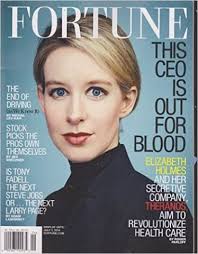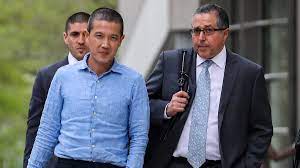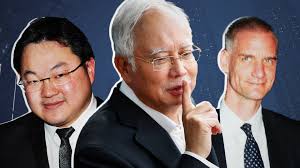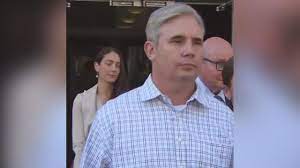DOJ’s Big Case Victories and Misguided Targets (Part II of III)

History is written by the winners – Napoleon
It’s never just a game when you’re winning – George Carlin
On the top of its record of success, DOJ won two big and highly-contested cases. The first against Elizabeth Holmes and the second against Roger Ng. In perhaps one of its most significant failures, DOJ was handed a quick acquittal of Mark Forkner, Boeing’s Flight Technical Director.
Elizabeth Holmes
DOJ’s win in this case was significant, even if the jury convicted Holmes of only 4 of 11 counts. It is rare for DOJ to bring a complex criminal case against a senior executive and ultimately to succeed. DOJ’s victory occurred in a highly-publicized environment and after a trial involving several “star” witnesses.
The jury convicted Holmes after an eight-week trial and 50 hours of deliberation. She was convicted of wire fraud conspiracy and three substantive wire fraud counts relating to the scheme to defraud investors. The jury acquitted Holmes of the patient-related conspiracy wire fraud count and three additional wire fraud counts. The jury hung on three investor-related counts. Holmes sentencing is set for September 26, 2022, and she faces a maximum sentence of 20 years.

Holmes and her co-defendant Ramesh “Sunny” Balwani, who is currently in trial, were charged with fraud conspiracy stemming from a multi-million-dollar scheme to defraud investors by promoting Theranos, a Silicon Valley company, with false claims surrounding its technology to revolutionize medical laboratory testing through methods for drawing blood, testing blood, and interpreting the resulting patient data. Holmes promoted Theranos and solicited large investors even though she knew that Theronos’ technology was flawed and suffered from inconsistent and inaccurate results for blood testing.
The government presented a laundry list of star like witnesses, including James Mattie, Larry Ellison and others. To back this testimony, the government presented evidence that Holmes presented fake demonstrations, falsified validation reports, made misleading claims about contracts and overstated financials to investors. To push her fraud, Holmes sought to present herself as a star entrepreneur, traveling the world in private jets, winning awards and numerous self-promotional media reports.
The mixed verdict reflected the jury’s parsing of the fraud scheme between the impact on investors versus the fraud alleged against patients. The jury evidently was not swayed by Holmes’ dramatic defense and seven days’ of testimony outlining past sexual abuse and specific claims that her co-conspirator, Ramesh Balwani, Theranos’ COO, and former boyfriend, abused her. If anything, Holmes’ decision to testify may have been her undoing. Juries are quick to identify evasive and skewed versions of events, especially when attempting to counteract a vast amount of witness and documentary evidence.
Roger Ng
Roger Ng, former Managing Director, at Goldman Sachs was convicted on all counts stemming from a multi-billion dollar bribery scandal occurring in Malaysia relating to the 1MDB bond offering. This underwriting venture conducted by Goldman Sachs was the result of vast bribery conspiracy involving Tim Leissner and a shady financier Jho Low, who is a fugitive in China. The jury convicted Ng of conspiracy to violate the FCPA and money laundering conspiracy. The jury convicted Ng after a two month trial.

Tim Leissner, a co-conspirator and cooperating witness, spent days on the stand implicating Ng. Leissner’s testimony was challenged and undermined by his admission of numerous instances where he lied about his personal life, including being married to two women at the same time, and a laundry list of lies and misdeeds. According to Leissner and the government’s evidence, Leissner, Ng and Lho mislead Goldman Sachs into backing three major bond transactions from the Malaysian sovereign wealth fund 1MDB. Goldman Sachs earned $600 million in fees and revenues for underwriting the transactions.
Leissner plead guilty and testified for nearly 10 days. As part of his plea agreement, he forfeited $43.7 million, as well as various securities holdings worth approximately $200 million. Leissner implicated Ng and placed him at a key meeting in London in 2012 with Jho Low at which they agreed on the bribery scheme and identified the officials who would have to be paid.

The contracts at issue were secured by payment of large bribes through Lho to Malaysian government officials. Leissner, Ng and Lho also stole large amounts of 1MDB funds, totaling nearly $2 billion for their own personal benefit. Former Malaysian Prime minister Najib Razik received approximately $746 million in bribes, and his stepson took an additional $238 million from the 1MDB sovereign wealth fund.
Ng put on a defense claiming that the source of the $35.1 million in his bank accounts was actually a return on an investment to NG’s wife. Unfortunately, Ng’s wife was unable to present any documentary evidence to corroborate her claim. Again, this defense, while possibly the only conceivable explanation, may have made the government’s case look stronger.
Mark Forkner
DOJ’s prosecution of Mark Forkner stands as a blackmark on DOJ’s handling of the Boeing 737 MAX safety scandal. Forkner, Boeing’s former chief technical pilot, was acquitted by a jury 90 minutes after beginning deliberations. On its face, the Boeing 737 MAX safety scandal was the result of numerous governance failures that ultimately pointed to higher level executives at Boeing, including Boeing’s board of directors.

Whether these misdeeds rose to the level of criminal liability is an issue into which we do not have visibility. But from the overall criminal investigation of Boeing, it is clear that a detailed, step-by-step, witness-by-witness investigation was not conducted. Such an investigation would have been resource-intensive and time consuming but could have resulted in identifying a more comprehensive and far-reaching conspiracy among managers, executives and corporate leaders.
The Boeing 737 MAX safety scandal resulted in two deadly crashes that could have been avoided had proper caution and care been taken.
Mark Forkner was singled out for his alleged misleading of FAA officials. The case against Forkner was thin and his defense counsel rightly told the jury that Forkner was being singled out for blame while corporate leaders and executives escaped any responsibility.
Boeing agreed to a $243 million criminal penalty, $1.77 in compensation and $500 million to establish a crash victims’ beneficiary fund to compensate families of the 346 innocent passengers killed in the two crashes.














